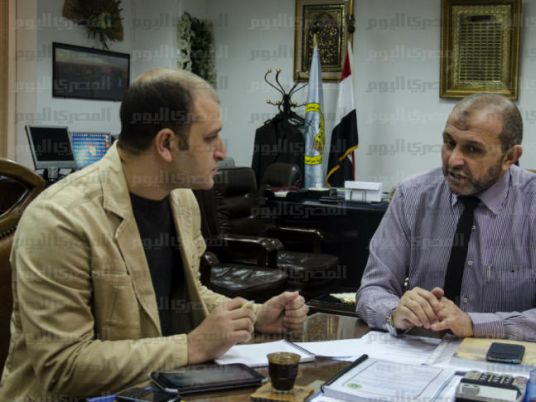
Egypt is safe from the epicenters in Mediterranean, according to Hatem Ouda, head of the Astronomy and Geophysical Research Institute, who denied news about potential tsunami strike that could occur over the coming few years.
In 2013, the national earthquake network observed indicators about increasing earthquakes in north Mediterranean from which Egypt will be far, he said.
In an interview with Al-Masry Al-Youm, Ouda said that the institute contributed to development projects in Egypt like the Suez Canal development project, President Abdel Fattah al-Sisi’s initiative to develop Halayeb and Shalateen cities, the one-million unit house to limit catastrophes resulted from earthquakes. He warned against a catastrophe at 15 May and Mokattam districts due to formation of soil after huge amounts of limestone was discovered which is not suitable for construction and could lead to disaster on the long-run.
Asked about problems that face the institute following the 25 January revolution, Ouda pointed to robbery of the seismic stations, estimated at 68 stations, which has occured more than 20 times. One of the stations, located at Sakkara archaeological site was robbed three times in a week, though security elements were there to guard it. Costs of one station is estimated at more than LE250,000. Confronting the robberies will not take place unless security is completely restored like it used to be before the 2011 revolution especially in Sinai and Red Sea, which saw the highest number of incidents.
Among other problems that face work of the institute, according to Ouda, is that it has not obtained license to build new laboratories, meeting halls in 10 years. The last conference organized by the institute was attended by big number of European, African and Arab ministers was held at a pavillion at LE30,000.
An increase to the institute’s budget was allocated upon adoption of the new constitution, Ouda said hoping for more in order to purchase the best developed equipments.
Regarding developments about the Kattamiya observatory and news about establishment of an administrative area on the Suez road, Ouda said that each of the institute’s astronomy department chief and ministers of scientific research and housing met to tackle the damages that would result in case the project was carried out. He stressed that the observatory must be moved so that the urban growth would not reduce its efficiency, adding that observatories worldwide are surrounded by wall, 30 km apart, that is free of any sources of light or noise.
He also proposed building another observatory during the coming few years in Saint Catherine city, for being separate from urban places.
The institute has a great role, especially in sustainable development as well as scientific research, he said adding that scientific research should be linked to the government and education
Asked about the high dam in Aswan, Ouda said that it was established in a genius way to resist quakes. It was built in a way that the rock-fill dam moves one unit in case an earthquake occurred without causing dangers to the dam.
Ouda stressed necessity to apply the legislation that already exists. Authorities in question should coordinate to reduce natural disasters as well as permissions for building at specific places to limit the dangers.
Edited translation from Al-Masry Al-Youm




